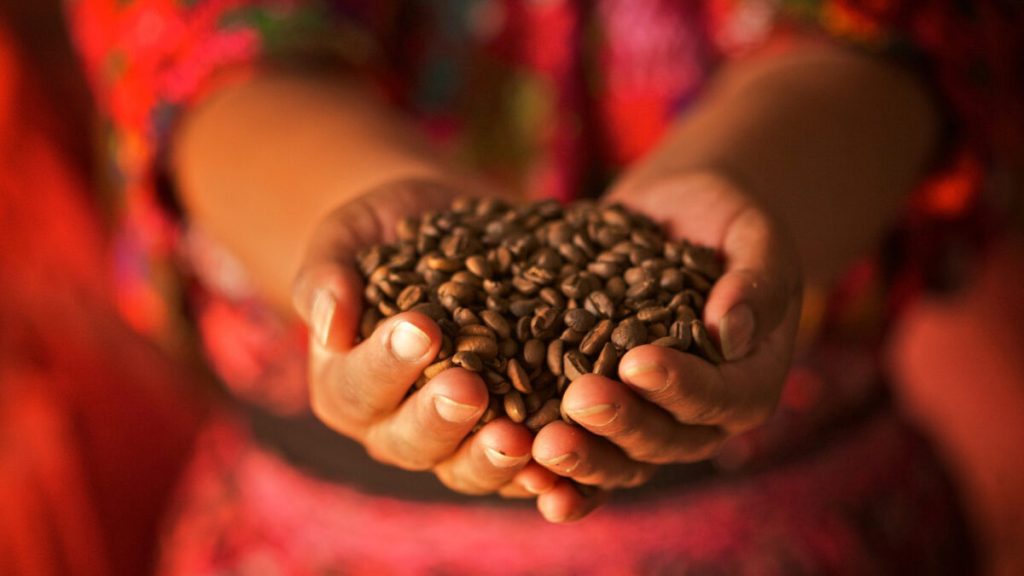Ethiopia’s ancient coffee forests stand tall in the misty highlands, nurturing some of the finest coffee beans. These pristine forests hold centuries of coffee-growing wisdom passed down from generation to generation. Ethiopian farmers carefully select each coffee cherry by hand, preserving traditions over 1000 years. The high elevation, between 1,500 and 2,200 meters, gives these beans exceptional flavour notes.
Conditions and sustainability practices
The natural shade from forest canopies shelters coffee plants, creating ideal growing conditions. Farmers maintain organic practices, letting nature take its course without artificial chemicals. Ethiopian coffee flourishes under pristine environmental conditions – clean mountain air, fertile soil, and abundant rainfall set the stage for premium beans. These elements come together perfectly, yielding coffee cherries brimming with complex flavours.
Distinct flavour profile of Ethiopian beans
Mountain-grown Ethiopian coffee delivers bright, complex flavours. Notes of jasmine, bergamot, and blueberry dance on the palate. The medium body carries subtle wine-like qualities balanced by a clean, sweet finish. Natural processing methods preserve the beans’ inherent characteristics. Master roasters highlight these unique traits through precise roasting techniques.
Direct benefits of trade practices
Direct partnerships between farmers and buyers foster stable trading relationships. Premium prices enable farming families to invest in their communities. Farmers gain access to agricultural training and improved processing methods. Fairtrade Ethiopian Arabica represents a positive change in coffee-growing regions.
Quality assurance in every step
Rigorous quality control maintains high standards from farm to cup. Each batch undergoes thorough inspection and grading. Trained quality experts evaluate beans for size, density and cup quality. Proper storage and transportation preserve freshness and flavour. Roasting facilities maintain strict protocols to highlight the beans’ best qualities.
Brewing recommendations
- Grind size- Medium-fine for pour-over, medium for drip
- Water temperature- 195-205°F
- Ratio- 1- 16 coffee to water
- Brew time- 2.5-3 minutes for pour-over
- Pre-infusion- 30-45 seconds
Cultural importance and coffee ceremonies
Ethiopian coffee ceremonies celebrate hospitality and community. The ritual begins by roasting fresh beans over hot coals. Women traditionally prepare and serve coffee to family and guests. Three rounds of coffee symbolize blessing, peace and life. This age-old tradition highlights coffee’s deep cultural roots.
Supporting coffee growing communities
Fair prices allow farmers to maintain traditional practices. Communities invest in education and infrastructure development. Women gain opportunities for economic independence. Youth stay engaged in coffee farming, preserving generational knowledge.
Seasonal variations and harvesting
Peak harvesting runs from October through December. Farmers handpick only perfectly ripe cherries. Careful processing preserves natural flavours. Each region’s unique microclimate influences taste profiles. Seasonal changes create subtle variations in coffee characteristics.
Storage guidelines for maximum freshness
- Store beans in airtight containers away from light
- Keep in a cool, dry place at room temperature
- Purchase quantities for 2-3 weeks’ consumption
- Avoid refrigeration to prevent moisture damage
- Check roast dates for optimal freshness
Processing methods and quality control
Natural sun-drying brings out fruit-forward flavours. Washing stations maintain strict cleanliness standards. Regular quality testing ensures consistency. Proper fermentation develops complex taste notes. Careful sorting removes any defective beans.
Growing consumer interest boosts demand steadily. Farmers continue improving cultivation methods. Research advances coffee plant diversity. Infrastructure development eases transportation. Market expansion creates new opportunities.
The magnificent fairtrade ethiopian arabica coffee embodies generations of farming expertise. Cups of tea tell stories of tradition, craftsmanship, and positive change in farming communities. This exceptional coffee delivers an unmatched sensory experience while supporting sustainable agriculture practices.

